Lung Khuy Cave: A Journey into Nature’s Untamed Beauty
Nestled in the mountains of Hà Giang, Lung Khuy Cave is a hidden wonder, known for its dense stalactite formations and untouched beauty. Step into its mysterious chambers and explore a world millions of years in the making. Let’s explore this unique place with MOTOGO Tours!
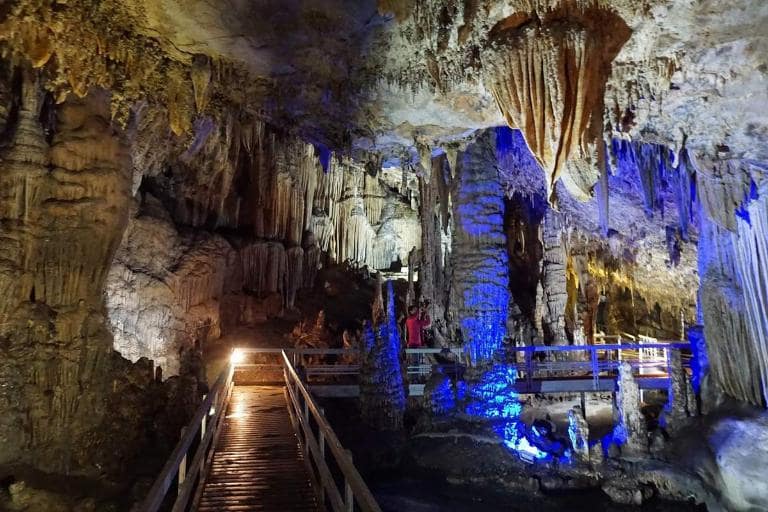
Overview Lung Khuy Cave
Lung Khuy Cave, located in Ha Giang’s Quan Ba District, is renowned for its pristine stalactite formations and the captivating legend that surrounds it. Hidden among towering karst mountains, this cave is a gem of Vietnam’s natural wonders, offering both beauty and cultural significance.
Lung Khuy Cave is in where?
About 3 kilometers from Tam Sơn town, Quan Ba District, Lung Khuy Cave is tucked on the side of a big mountain among the rocky karst settings of northern Vietnam. One may only reach the cave on foot from a little mountain path.
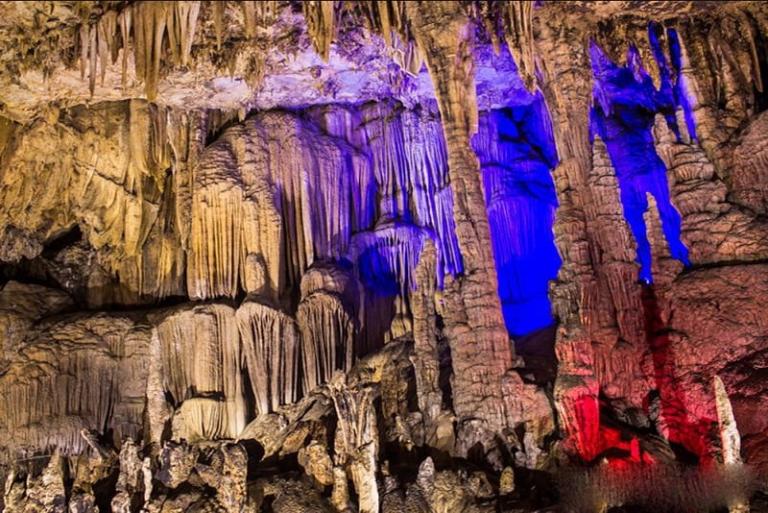
Its entrance is modest, only 1.5 meters tall, and it is difficult to find since its widemaking is just around 1 meter. Lung Khuy Cave, which has millions of years of age, was only recently found by the larger population and has stayed mostly unaltered in natural beauty.
Legend of Lung Khuy Cave
Lung Khuy Cave bears with it a mystical and romantic legend connected to the nearby Hmong ethnic group in Ha Giang. The story goes that a severe drought once beset the mountainous area, inflicting suffering for people as well as for the environment.
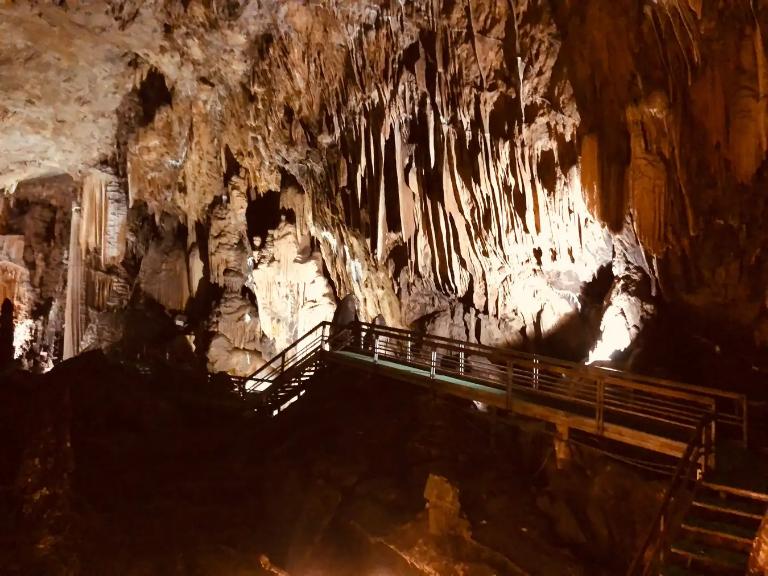
The Hmong, desperate for relief, would climb the high peaks to pray for rain. In response to their pleas, the heavens blessed Lung Khuy with a small but vital water source, which became known as the sacred well within the cave.
A Dragon God was sent to guard this sacred well. In human form, he descended to Earth as a young Hmong man, who brought rain to the region, reviving the mountains and forests. The water flowing from the well remained crystal clear.
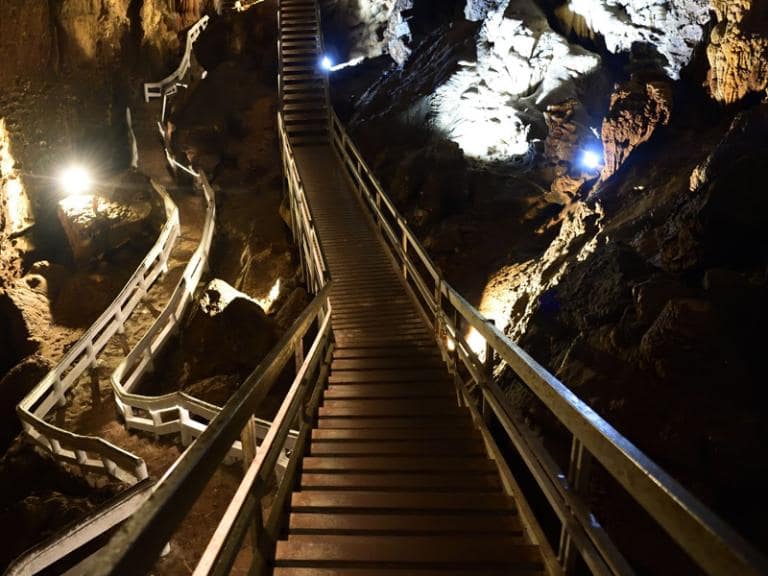
So, the Hmong women who drank from it became more beautiful, their vitality restored. The Dragon God eventually fell in love with a Hmong girl and married her. The couple made Lung Khuy Cave their home, and from there, the village of Lung Khuy was born.
The Approach to Lung Khuy Cave
Exploring cave is an adventure that takes you through the stunning landscapes of Quan Ba, Ha Giang. Located on the side of a mountain, this hidden gem requires a bit of effort to reach but promises breathtaking views and a close connection with nature.
The ideal visit time is…?
Usually running from September to April, the dry season is the best time to visit Lung Khuy Cave. The trails are more easily accessible, the temperature is milder, and visibility is clearer during these months providing amazing vistas from the cave entrance.
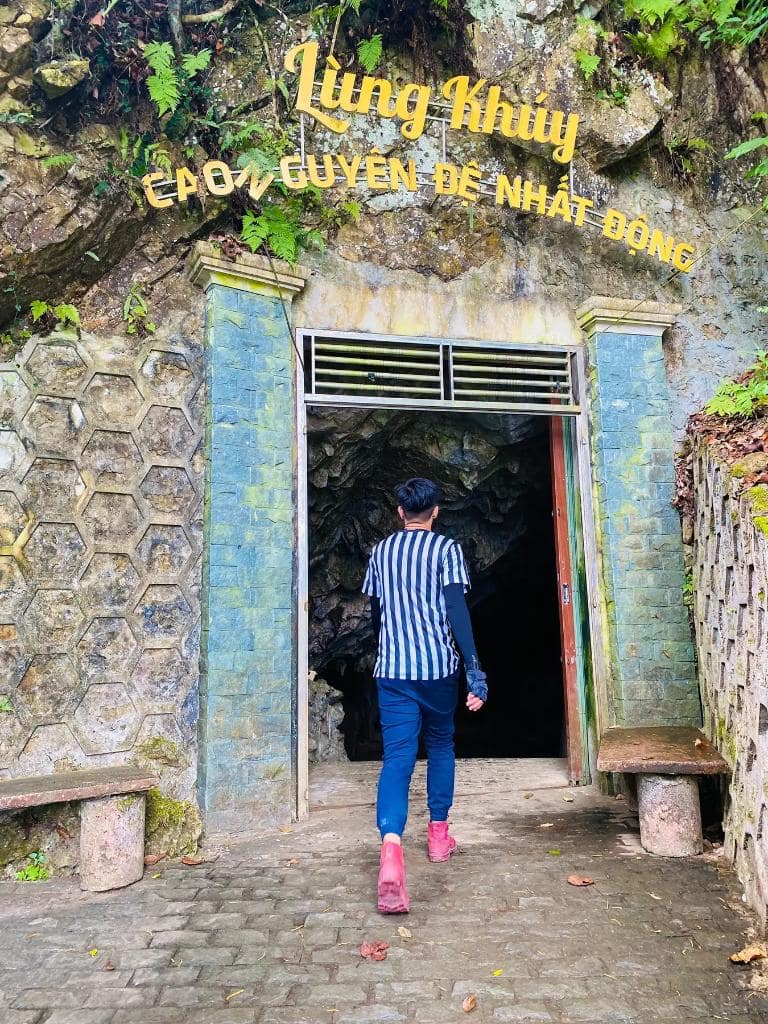
Ha Giang suffers fog and mist in the winter, so the absence of strong rain makes climbing simpler and safer. Steer clear of going during the rainy season (May through August), when the trails could get slick and the thick fog may block views.
How to get Lung Khuy Cave
You must first journey from Hanoi to Ha Giang before reaching Lung Khuy Cave. Taking an overnight sleeper bus from My Dinh Station in Hanoi and travels roughly 6 to 8 hours to Ha Giang is among the most often chosen option. With tickets ranging from 300,000 to 380,000 VND per, this is a reasonably priced and practical method of travel.
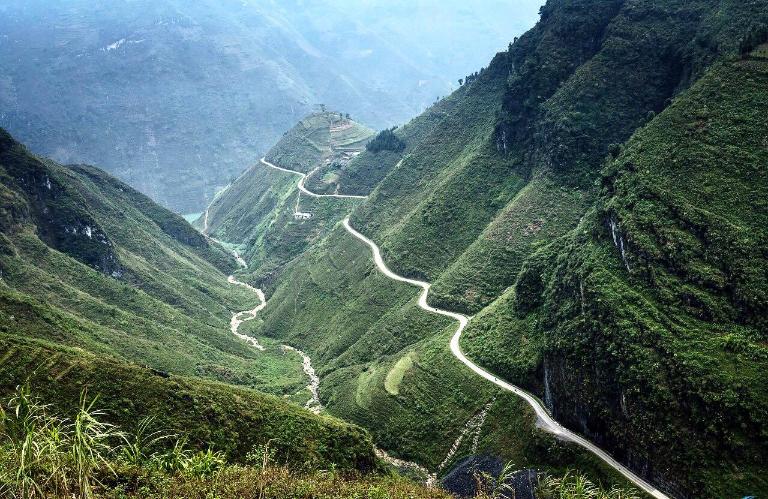
Renting a motorcycle is another choice available to adventure seekers. The approximately 8 to 10 hour journey provides breathtaking views of the terrain of northern Vietnam. Once you arrive in Ha Giang City, the trip proceeds toward Tam Son town, in the Quan Ba District, almost half-distance north.
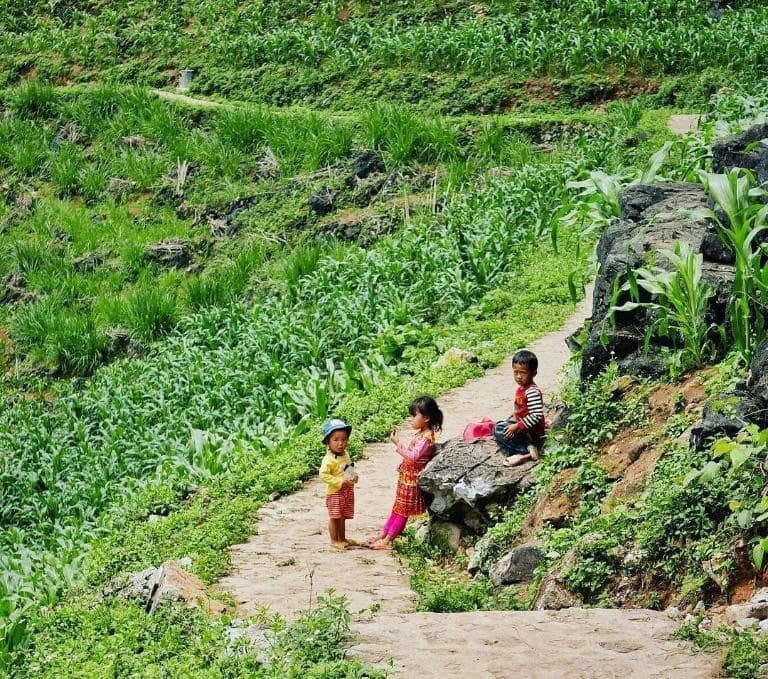
Visitor should rent a motorbike or go on Ha Giang Loop Tours to travel the picturesque 4C route, sometimes known as the “Happiness Road” around 1.5 hours. Usually ranging from 180,000 to 300,000 VND day, motorbike rentals are From Tam Son, the mountain base is further eight kilometers by road. The trip ends with a 2-kilometer climb up a well-marked
Trekking to Lung Khuy Cave
The expedition depends critically on trekking to Lung Khuy Cave. The trip really starts on the 2-kilometer path up to the cave entrance after you park your car. The road meanders around the rocky, mountainous terrain. However, in some places it is somewhat steep. Nevertheless, the trail is clearly defined and provides enough rest stations.
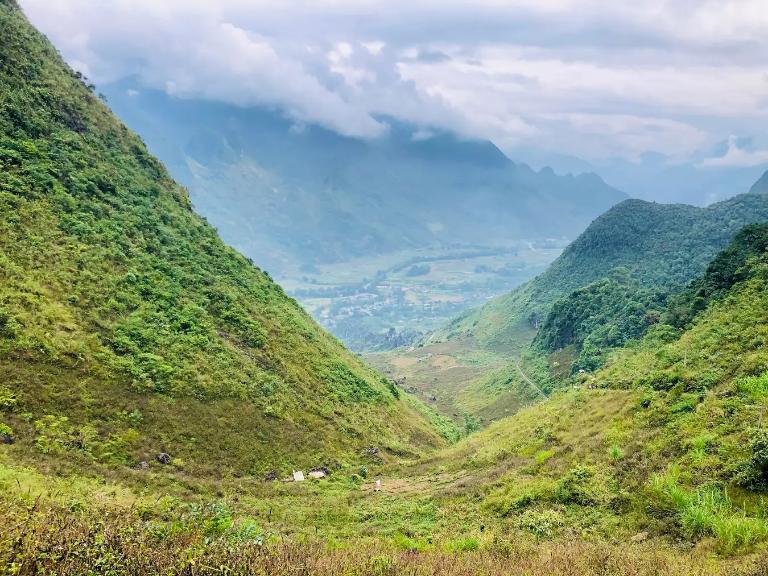
Adults pay 50,000 VND for the entrance charge at Lung Khuy Cave; minors pay 20,000 VND. Stairways designed for ease help the exploring inside the cave to be simpler. The inside paths let guests safely investigate the amazing stalactite and stalagmite formations of the cave. Camping close to the cave is a common choice for people wishing to really connect with nature.
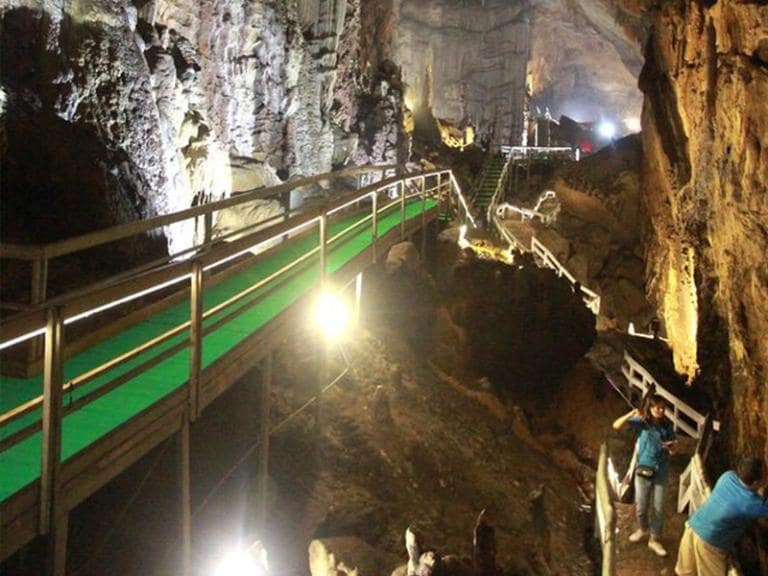
Investigating Lung Khuy Cave: a Natural Beauty
Lung Khuy Cave has stayed unspoiled for millennia, just lately coming under public attention with its immaculate stalactites and stalagmites. Let’s investigate the intriguing aspects that define this cave as a must-see site.
The Entrance and Surroundings of Lung Khuy Cave
The entrance to Lung Khuy Cave is small and easy to miss, standing at less than 1.5 meters high and about 1 meter wide. Hidden among thick greenery and rugged rocks, the entrance blends seamlessly into the landscape, giving it an almost secretive allure. Surrounded by lush trees, the cave feels like a hidden gem, waiting to be discovered.
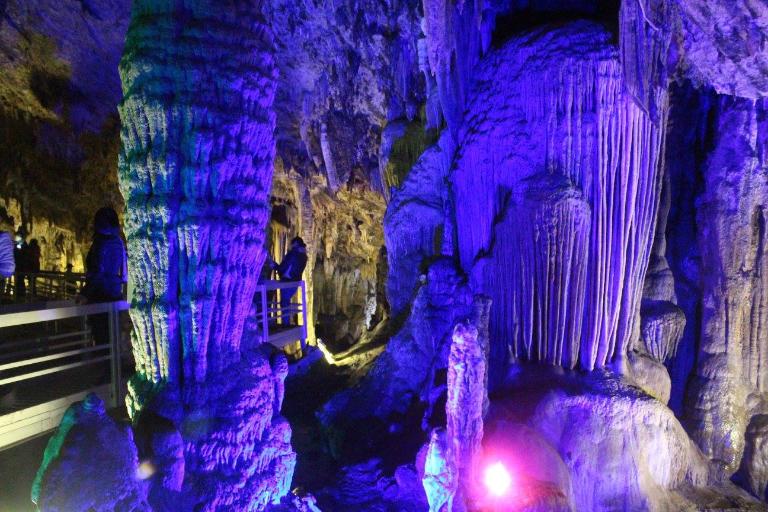
As you step inside, the atmosphere changes dramatically. The natural quiet of the outside world is replaced by the cool, echoing space within. The sound of dripping water and the soft glow of colorful lights reveal a stunning, untouched underground world that contrasts with the wild, untouched beauty above ground.
Mysterious cave with incredible height
Lung Khuy Cave is roughly 1,000 meters, and as you go further within, the sheer scale of the cave is progressively obvious. The wide hallways lead to rooms where the width in some places approaches an incredible 200 meters, therefore giving an almost otherworldly impression of enormous space.
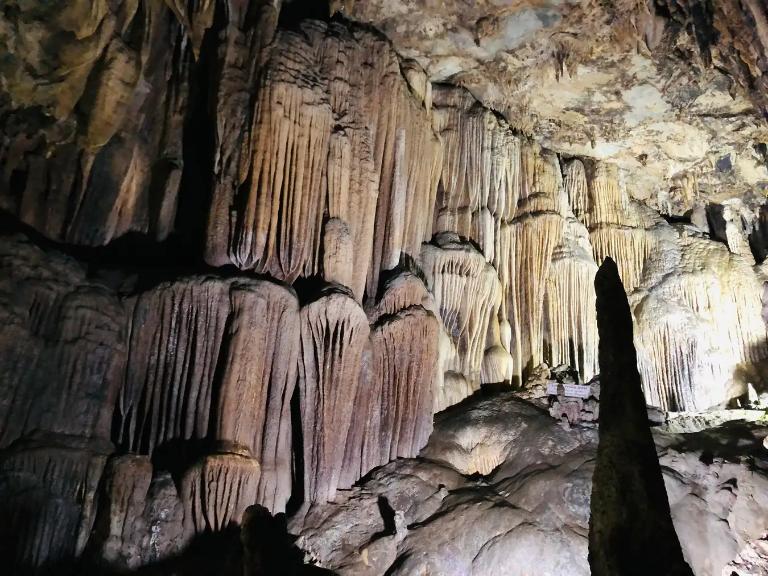
The towering ceilings, which rise high above, evoke the feeling of standing in a natural cathedral. The combination of the cave’s vastness and its grand, dome-like structure creates an awe-inspiring experience, making visitors feel both humbled and captivated by the raw beauty of nature.
Stalactites and Stalagmites: The Unique Cave Formations
Cave is really unique because of their incredible density of stalactites and stalagmites. Unlike many other cavernues where the formations are scattered, here they gather nearly totally in one direction. Stone columns seem to layer and combine to create a complicated, alien landscape that is both immersive and overpowering.
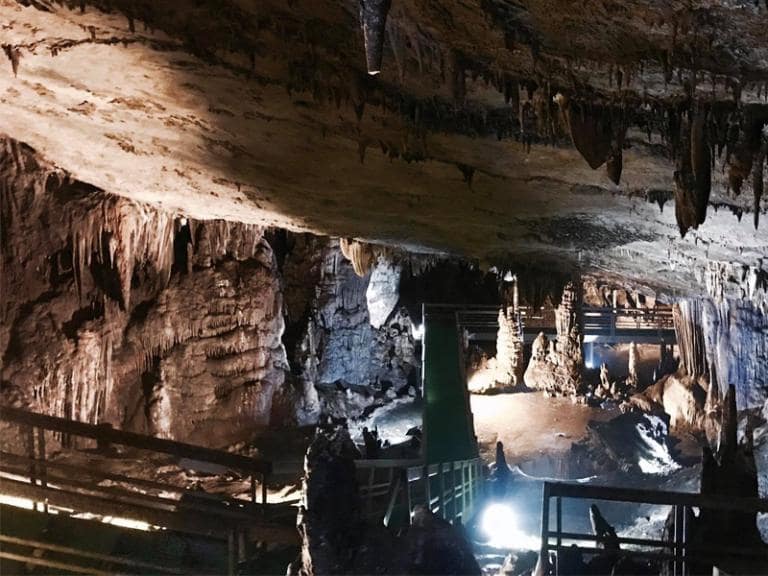
As visitors move deeper into the cave, the formations continuously evolve in shape and structure. Stalactites of various sizes hang from the ceiling like natural sculptures, each corner revealing new, unexpected forms. The sense of wonder grows with every step, as these natural formations seem to unfold gradually, keeping the experience fresh and exciting.
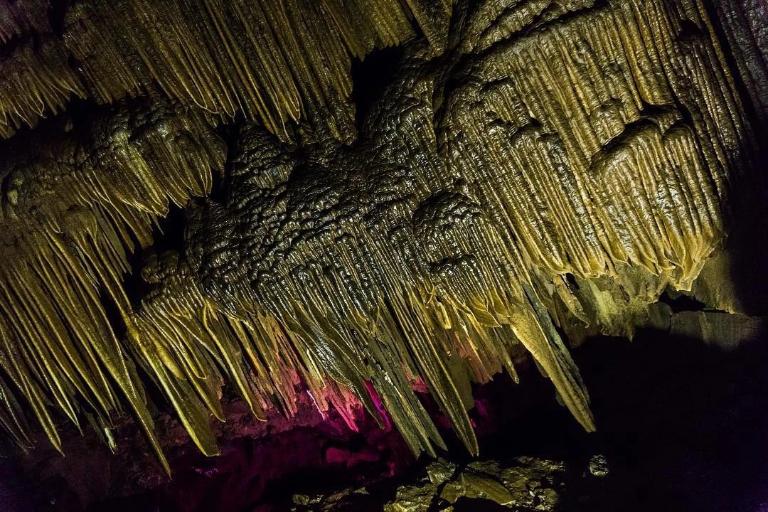
What makes this experience even more remarkable is the untouched, pristine nature of the cave. Unlike many other locations where human activity has impacted the formations, Lung Khuy’s stalactites and stalagmites remain in their original state, unspoiled and pure. This preservation allows visitors to feel as though they are stepping back in time, witnessing a hidden world that has remained unchanged for millions of years.
Geological Importance of these formations
Lung Khuy Cave’s unspoiled forms provide a rare window into millions of years of geological past. Scientifically valuable, the stalactites and stalagmites stay in perfect condition with minimal to no human meddling. The management of the cave has taken great care to maintain its natural state, thus enabling guests to see the ancient beauty of the cave and so guarantee its preservation for next generations.
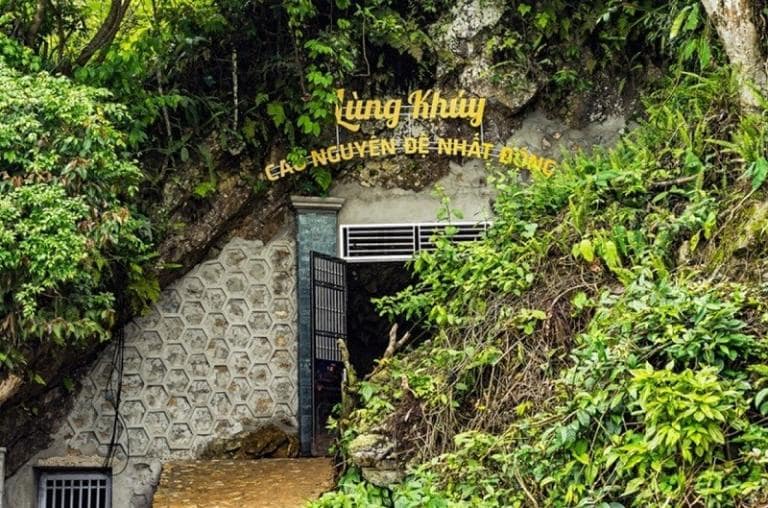
Lung Khuy Cave offers an unparalleled experience for those seeking to witness nature in its most pristine form. From the awe-inspiring formations to the sense of mystery at every turn, the cave’s untouched beauty captivates all who enter. A visit to place is not just an exploration—it’s a journey into the heart of geological wonder.
Related Posts:
- Tien Waterfall – Gio Pass: A Hidden Gem In Ha Giang
- Lung Tao Village: A Must-Visit Destination for Buckwheat Flower Viewing
- Cang Bac Me Relic: Echoes of Vietnam’s Heroic Past
- Experience Suoi Thau Grassland: The Untamed Beauty of Ha Giang
- Bac Sum Pass: Discover Ha Giang’s Stunning Mountain Road








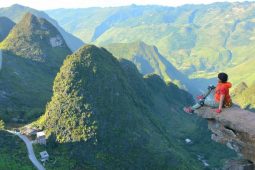
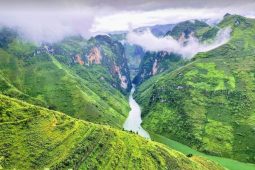

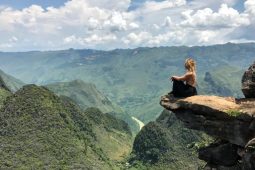
Be the first to comment!